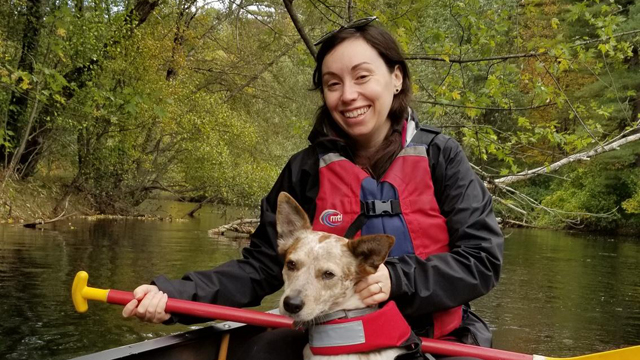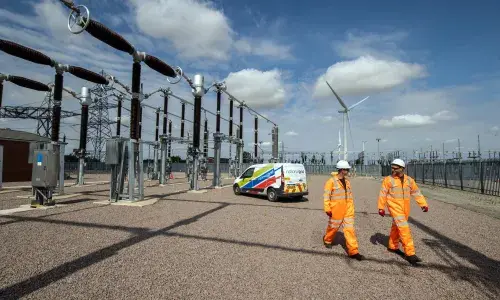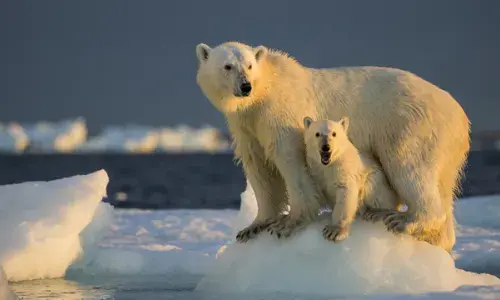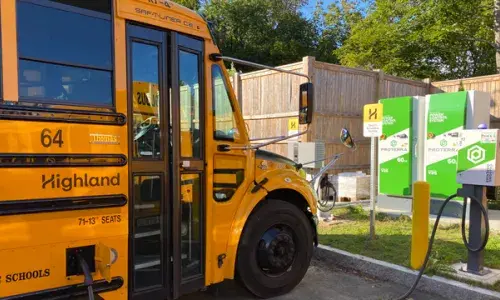
Green collar jobs: Sarah Basham – finding lower carbon ways to heat homes
Sarah Basham, who is based in Massachusetts, tells us about the actual light bulb moment that inspired her career and led to her role of finding lower carbon ways to heat homes in the Northeastern US.
I’m working on how we can best decarbonize the heating sector for New York, Massachusetts and Rhode Island. Our team is looking into potential solutions such as heat electrification, geothermal energy and low-carbon fuel alternatives.
We aren’t trying to find a one-size-fits-all answer but are looking at how we can help customers transition into the low-carbon solution that works best for them.
Currently in the Northeast region, home heating is achieved through multiple technologies from oil burners and propane furnaces to wood or pellet stoves, and each house might fit a different means of decarbonizing. We aren’t trying to find a one-size-fits-all answer but are looking at how we can help customers transition into the low-carbon solution that works best for them. Since heating consumes a large amount of energy, decarbonizing this sector is vital for our states to meet their climate goals.
A light bulb moment
I was first drawn to green issues when I was in college – studying Mechanical Engineering Technology – and learned that my dorm lights were turning on due to coal power plants. I had always cared about the environment and I couldn’t comprehend how such a complex and environmentally damaging process was needed for me to have my lights on. I knew I wanted to dedicate my career to learning more about power and energy systems, and their environmental impacts.
Championing eco-education
This interest prompted me to speak with the department heads at my university, about adding classes to the curriculum around air emissions from fossil fuel use and renewable energy. I ended up taking some night and graduate level classes while the new areas were being developed.
It may seem odd for an environmentalist to focus on fossil fuels, but I was convinced that it was where I could make the largest impact.
The experience furthered my interest in renewable electricity and coal power generation. I went on to graduate school to study fuel science and, particularly, coal and energy conversion processes. It may seem odd for an environmentalist to focus on fossil fuels, but I was convinced that it was where I could make the largest impact.
Starting out at the Department of Energy
Before National Grid, I was a Technical Consultant for the Bioenergy Technologies Office (BETO) at the US Department of Energy. I supported BETO’s work with national labs and other grant recipients, as they advanced bioenergy, biofuels and bioproducts. In this role I was also fortunate to help run workshops on biomass gasification, algal feedstocks and their conversion to liquid fuels, bio-derived carbon fiber, social aspects of sustainability and more. I gained great insights into what industrial partners and research institutions focus on when developing innovative solutions.
Making it happen
I’ve been at National Grid since 2015 and have worked in three different roles, all related to sustainability. My first role was in energy efficiency and then, prior to my current one, I was on the US Sustainability team.
My co-workers inspire me daily. They’re extremely intelligent and passionate environmentalists. They’re constantly striving to propel our US business to be more sustainable and have proven that they can make this happen.
I take the most pride in work that has tangible results. For example, I used to manage employee electric vehicle (EV) charging station installations and I would feel proud seeing the stations completed with EVs charging at them. I recently supported the US-specific responsible business and net zero plans, focusing on reducing our direct and indirect environmental emissions.
Lessons learnt about clean energy initiatives
In sustainability you need to think about the big-picture all the time. When problem-solving for one environmental issue, you have to be cognizant of every other potential environmental impact that solution might have – the knock-on effects. On top of that, you need to consider both social and economic impacts. For a solution to be fully sustainable, there must be a benefit across the board. And this is certainly the case when considering potential home heating decarbonization solutions.
Advice on getting into a green collar career
This is what worked for me. I picked a specific topic that I was interested in, but I kept my general interest and knowledge base open to many other green subject areas. I’d recommend finding areas in the green space that you’re passionate about and focusing on what you think your individual skillset can tackle best.
Whether you’re an engineer, an accountant or a graphic designer, you can hone in on your skills while keeping up with current energy and environmental affairs. This will allow you to find how you can best fit into the green space and hiring managers will appreciate your talents and passion.
Living a green life outside of work
I do my best to reduce my lifestyle emissions, waste production and water usage with sustainable best practices at home. I’m a member of a community solar field and my town’s municipal green energy program for any electricity that my solar doesn’t cover. For home heating, I have both electric ‘mini-split’ heaters and a pellet stove to reduce my oil use during winter. I’ve got a battery electric car and, for water use reduction, I have a rain collection system and low-flow water fixtures.
When we buy something, we’re voting for that product to be produced. I like to consider the circular economy with all my purchases to determine how they were manufactured, what their environmental impact is, and how I will use and/or discard the product.
I also try to think before I make purchases. When we buy something, we’re voting for that product to be produced. I like to consider the circular economy with all my purchases to determine how they were manufactured, what their environmental impact is, and how I will use and/or discard the product. Sustainable foods and fabrics are two big economies that we can all influence with our purchasing power.
My eco hero is…
This is hard for me to answer because I’m consistently astonished by all the great work that is being done across the eco-sector, by individuals and companies. For example, I’m really impressed with the work TJ DiCaprio did by implementing a carbon fee at Microsoft, which started back in 2012. This is extremely intricate work that impacted the entire company, made a big difference and was done transparently so the general public can learn from it.



